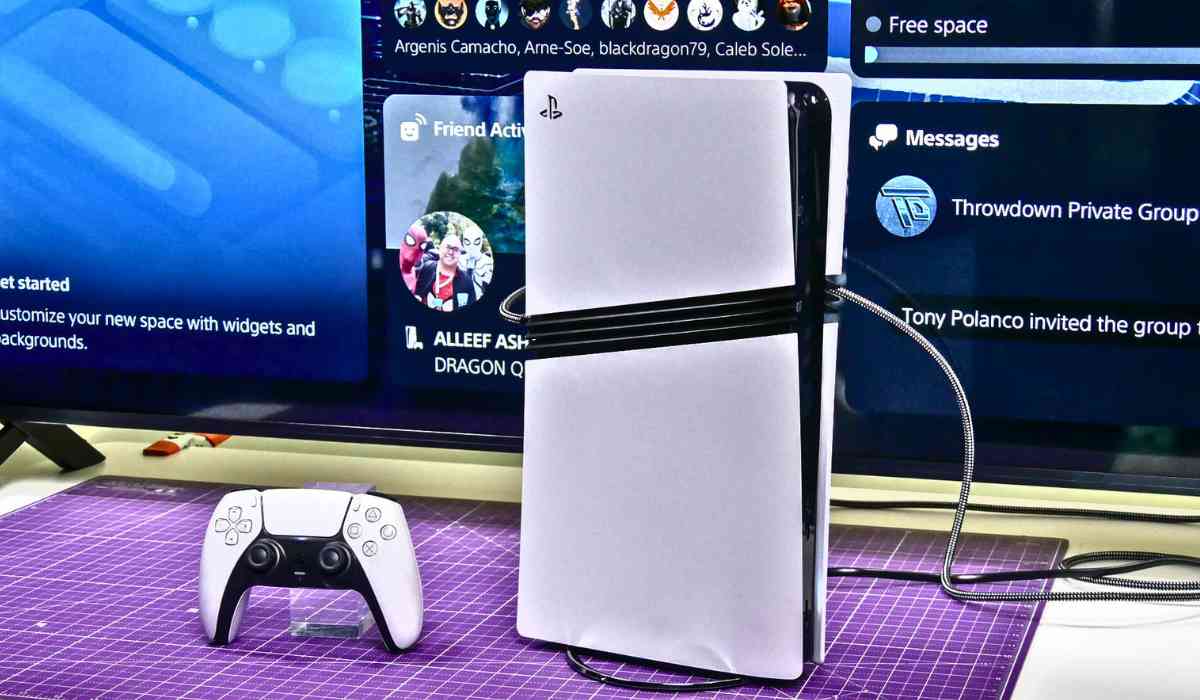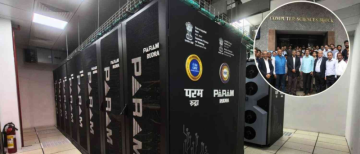Hey gamers! Remember when the PlayStation Network (PSN) went offline, and it felt like the end of the world? Well, the good news is that after nearly a whole day, the PSN is back up and running! That's right, you can finally get back to your favorite games and connect with your friends online.

What Happened?
On Friday, February 7, 2025, many PlayStation users worldwide experienced trouble connecting to the PlayStation Network. This meant people couldn't play online games, access digital content, or use multiplayer services. Imagine not being able to play "Fortnite" or "Call of Duty" with your friends—bummer, right? According to DownDetector, a website that tracks outages, thousands of users reported issues with server connectivity, login access, and the PlayStation Store. The outage affected all PlayStation devices, including PS5, PS4, and even older consoles like PS3 and PS Vita.
PlayStation, Sony’s flagship gaming platform, is a beloved ecosystem for millions of gamers worldwide. However, like any large-scale online service, it occasionally experiences outages that leave users frustrated and disconnected. These outages can affect everything from multiplayer gaming and digital purchases to account management and access to cloud saves. While some outages are short and quickly resolved, others can last for hours or even days, disrupting gameplay and leading to widespread complaints on social media. The reasons behind these outages are varied and often involve a complex mix of technical, security, and external factors. One of the most common causes is routine maintenance. Sony periodically performs scheduled maintenance to improve performance, add new features, or enhance security, during which parts of the PlayStation Network (PSN) may be unavailable. Some of the players like Bit Game Hub did not experience such outages thankfully at the time.
While these are usually announced in advance, users still feel the impact, especially if it coincides with peak gaming times. Another significant reason is server overload. This typically happens when there's a massive influx of users—such as during a big game launch, a free giveaway, or holiday seasons—overwhelming the infrastructure and causing temporary outages. In some cases, unexpected bugs in game updates or firmware can also lead to wider system instability. One of the more serious causes of PlayStation outages is cyberattacks, especially Distributed Denial of Service (DDoS) attacks.
These attacks flood PlayStation’s servers with fake traffic, rendering them unusable for legitimate users. A notable example occurred during the 2014 holiday season when a major DDoS attack took PSN offline for days. These security threats highlight the vulnerability of even the most robust systems to coordinated attacks. Natural disasters and power outages at server farms or data centers can also contribute to downtime, especially if backup systems fail or if network providers are affected. Additionally, regional outages can occur due to issues with local internet service providers, meaning some users are affected while others are not. On the user end, sometimes what seems like a PSN outage is actually a connectivity issue related to individual home networks, such as router problems or DNS errors. Sony usually addresses outages quickly, and they provide real-time status updates through their official PSN Status page.
Despite their best efforts, outages can still tarnish the user experience, especially when they occur during important gaming events or tournaments. Sony has been investing in improving the reliability of the PSN infrastructure, particularly after past high-profile outages. Cloud redundancy, better server load balancing, and enhanced DDoS protection are some of the measures taken to minimize future disruptions. While outages are an unfortunate part of any digital service, understanding the reasons behind them can help users manage expectations and troubleshoot more effectively. As the gaming community grows and digital reliance increases, the need for robust, secure, and scalable infrastructure becomes more critical than ever for platforms like PlayStation.
Sony Responds
Sony, the company behind PlayStation, acknowledged the problem and confirmed that they were working to fix it. In a post on X (formerly Twitter), PlayStation Support stated that the "PSN has been restored" and that users should be able to access online features again. They also apologized for the inconvenience. Although Sony didn't explain the exact reason for the outage, they assured users that they had identified and resolved the operational issue.
![]()
Compensation for the Trouble
To make up for the disruption, Sony offered all PlayStation Plus members an extra five days of service. This means that if you're a PS Plus subscriber, your membership will be extended by five days automatically. Sony hopes this will help make up for the frustration caused by the outage.
How Users Reacted
Of course, the internet had a lot to say about the outage. Some users shared funny memes, while others complained about not being able to play their favorite games. One user on X wrote, "PSN down on a Friday night is criminal," while another praised Steam for its reliability. Some gamers pointed out the importance of having physical game discs, just in case something like this happens.
A Reminder of the Importance of Online Access
This outage highlights how much we rely on online services for gaming. Many games today require an internet connection to play, even single-player titles. This can be frustrating when the network goes down, leaving gamers unable to access the content they paid for.

How to Avoid Interrupted Gameplay on PlayStation
-
Check PSN Server Status Regularly
Before diving into online gameplay, visit the PlayStation Network Service Status page to ensure servers are up and running. This can save you the headache of wondering whether the issue is on your end. - Use a Wired Ethernet Connection
For a more stable and faster internet connection, plug your PS directly into your router using an Ethernet cable. It significantly reduces lag and disconnections compared to Wi-Fi. - Keep Your Console Software Updated
Regularly update your PS firmware and installed games. Outdated software can cause crashes or prevent online access altogether. - Avoid Peak Usage Times
Online servers can get overwhelmed during global events, new game releases, or holidays. Playing during off-peak hours may give you a smoother, uninterrupted experience. - Set Your PS to Auto-Download Updates
Enable automatic downloads for game updates and system software. This prevents forced delays when you start your game and find out an update is needed. - Monitor Your Home Network Health
Ensure other devices on your network aren’t hogging bandwidth. Streaming in 4K, large downloads, or multiple users can slow down your connection and impact online gameplay. - Use a Quality Power Backup (UPS)
A sudden power outage can interrupt gameplay and risk data corruption. Using an Uninterruptible Power Supply (UPS) can help safely shut down your console during outages. - Regularly Clear System Cache
Restart your PlayStation periodically to clear cache and prevent slowdowns or software glitches that can crash games. - Avoid Overheating
Make sure your PlayStation has proper ventilation. Overheating can lead to unexpected shutdowns, especially during long sessions. - Enable Cloud Saves and Manual Backups
Use PlayStation Plus cloud saving features or external drives to back up your game progress regularly. If a game crashes or your system reboots, you won’t lose your hard-earned progress.
Back to Gaming
For now, the PlayStation Network is back online, and gamers can breathe a sigh of relief. Hopefully, Sony has learned from this experience and will work to prevent similar outages in the future. Now, go forth and conquer your favorite games!
With inputs from agencies
Image Source: Multiple agencies
© Copyright 2024. All Rights Reserved Powered by Vygr Media.





















